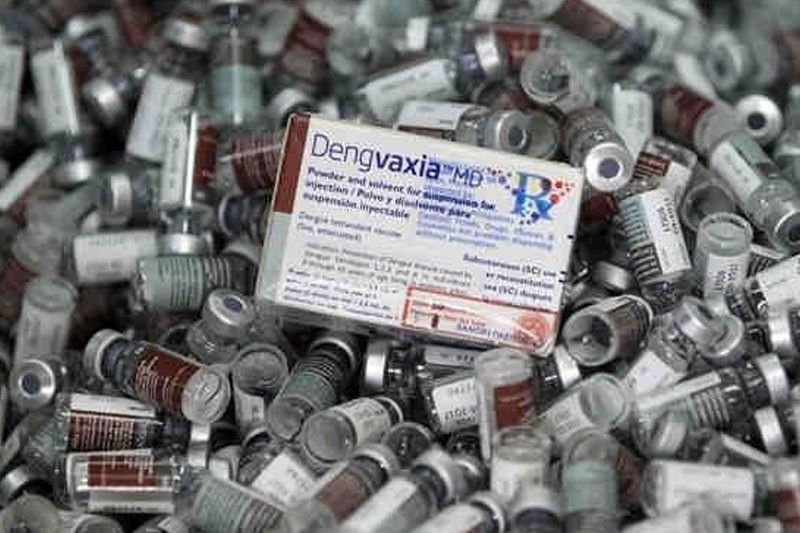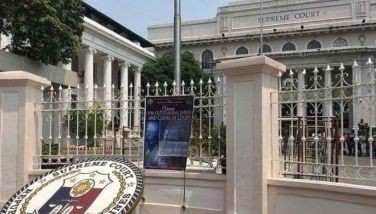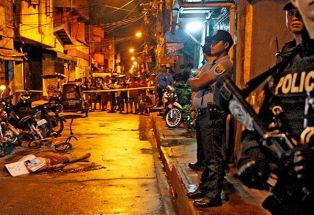‘Dengvaxia protects even those who have not had dengue’

MANILA, Philippines — Dengvaxia vaccine can give protection for up to three years even among the seronegative or those who have never been infected with dengue, Iloilo Rep. Janette Garin said on Thursday.
According to the former health secretary, Dengvaxia manufacturer Sanofi Pasteur declared that the vaccine is beneficial for the “whole population for three years.”
After the period, the vaccine remains “good” for the seropositive or those who have a history of dengue.
“However, for those who are seronegative or have not had dengue, .02 percent of them will have the possibility of developing severe dengue. There is reduced effects or protection for them,” Garin said in an interview with “The Chiefs” on Cignal TV’s One News.
“This means additional one day of hospitalization for the seronegative,” she added.
Garin said a booster shot may be given to patients on the third year.
She pointed out that Sanofi’s declaration was not highlighted because of “lapse in communication in France,” where the headquarters of the vaccine manufacturer is located.
“The problem was it was released online in France. A few doctors who have been campaigning against vaccines got it and read only portions of it,” she explained.
Garin apparently referred to the November 2017 statement of Sanofi that Dengvaxia can cause severe dengue if given to those who have not had dengue in the past.
A statement released by Sanofi in December 2017 showed there “was a clear and sustained benefit of being vaccinated with Dengvaxia up to six years following the first injection.”
However, there is an increased risk of having severe dengue for those who have not been infected by the dengue virus.
Garin said Sanofi has been working with the University of Pittsburgh in Pennsylvania for the development of a testing kit that will be used to determine whether a person had already contracted dengue or not.
The testing kit is being eyed for mass production in one to two years.
Amid the controversies created by the Dengvaxia fiasco, Garin maintained that the vaccine is needed by the Philippines given the country’s high endemicity for dengue at 93 percent. This is far beyond the 80 percent global standard.
Garin said the vaccine would be beneficial to children below nine years even as most of them are seronegative since the “probability that they were bitten by mosquito is less.”
She admitted that Dengvaxia had created a public scare.
“Since many are apprehensive about the vaccine, maybe it is not yet time for the dengue vaccine to come back,” she said.
Garin maintained that she implemented the Dengvaxia mass vaccination in accordance with the recommendations of experts from the World Health Organization.
Public disinformation bill
The outbreaks of diseases, including dengue and polio, could be a result of public health disinformation, according to Garin.
Garin said she would file a bill tentatively entitled “The Public Disinformation Bill,” which seeks to penalize doctors and outlets that would give false information regarding public health.
She proposed the designation of a spokesperson who will be authorized to speak on public health concerns.
“If it’s about immunization, then let a vaccine expert do the talking,” she said.
Garin said disinformation has taken a toll on the country’s immunization program.
“That’s why we have an outbreak of dengue due to the vaccine scare because some individuals have peddled wrong information,” she said.
Garin believed that disinformation about Dengvaxia has created vaccine scare among parents. The dengue vaccine has been demonized without any basis, she said.
“In fact, it was listed on the Essential Medicines List. By being on the EML, the government should make it available to the people at all times,” she said.
On Sept. 19, the Department of Health declared a polio epidemic following a case of the disease in Lanao del Sur. It was the first recorded case since the country was declared polio-free in 2000. Jennifer Rendon
- Latest
- Trending





























